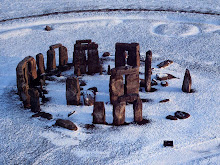Life
Patrick Kavanagh was born on 21 October 1904, in Mucker townland, Inniskeen parish, Co. Monaghan, the son of James Kavanagh, a small farmer with sixteen acres who was also a cobbler, and Bridget Quinn. He attended Kednaminsha National School from 1909 to 1916 and worked on the family farm after leaving school.
His earliest poems were printed by the Dundalk Democrat and Weekly Independent, in1928; three more were printed by George Russell (Æ) in The Irish Statesman during 1929-30. In 1931 he walked to Dublin to meet Russell, who introduced him to Frank O'Connor. Ploughman and Other Poems was published by Macmillan in 1936; soon after he moved to London in search of literary work but returned to Ireland when this failed to offer a living. An autobiography, The Green Fool appeared in1938 but was withdrawn after a libel threat from Oliver Gogarty.
A long poem, perhaps his best, The Great Hunger, appeared in the London-based Horizon in 1942; its tragic statement of the mental and sexual frustrations of rural life was recognised as masterly by Frank O'Connor and George Yeats, who issued it in Dublin as a Cuala Press pamphlet; it seems also to have attracted the attention of the police and censors. Another fine long poem, Lough Derg, was written the same year though not published until 1971.
A Soul for Sale (1947) was followed by Tarry Flynn (1948), more realistic than the former autobiography, and called by the author 'not only the best but the only authentic account of life as it was lived in Ireland this century'; it was briefly banned.
With his brother Peter and financed by him, Patrick edited a paper, Kavanagh's Weekly, subtitled 'a journal of literature and politics' (13 issues; 12 April-5 July 1952); he contributed most of the articles and poems, usually under pseudonyms.
In 1952 a Dublin paper, The Leader, published a profile which depicted him as an alcoholic sponger, and he sued for libel. He was harshly cross-examined by John A. Costello, defending The Leader, when the case came to trial in 1954, and he lost. The following year he was diagnosed with cancer and had a lung removed.
At this low point he experienced a sort of personal and poetic renewal; Recent Poems (1958), (Peter Kavanagh Hand Press, New York), was followed by Come Dance with Kitty Stobling (London, Longmans, 1960); these contain some of his best known shorter poems. His Collected Poems were published in 1964 by MacGibbon and Kee who also brought out Collected Pruse (1967). Tarry Flynn was dramatised by P.J. O'Connor and produced by the Abbey Theatre in Dublin and in Dundalk in 1967.
He married Katherine Barry Moloney in April 1967 and lived with her in Waterloo Road, Dublin. He died on 30 November the same year in Dublin. In 2000 the Irish Times surveyed 'the nation's favourite poems' and ten of Kavanagh's poems were in the first fifty. His poem 'Raglan Road', written to be sung, was performed by the folk group, The Dubliners, and remains very popular. The Great Hunger was adapted for the theatre by Tom MacIntyre, and produced in Dublin (Abbey Theatre, 1983).
A second dramatic adaptation of Tarry Flynn was made by Conall Morrison (Abbey Theatre, 1997).
Patrick Kavanagh
Come Dancing with Kitty Stobling
No, no, no, I know I was not important as I moved
Through the colourful country, I was but a single
Item in the picture, the name, not the beloved.
O tedious man with whom no gods commingle.
Beauty, who has described beauty? Once upon a time
I had a myth that was a lie but it served:
Trees walking across the crest of hills and my rhyme
Cavorting on mile-high stilts and the unnerved
Crowds looking up with terror in their rational faces.
O dance with Kitty Stobling I outrageously
Cried out-of-sense to them, while their timorous paces
Stumbled behind Jove's page boy paging me.
I had a very pleasant journey, thank you sincerely
For giving me my madness back, or nearly.
Epic
I have lived in important places, times
When great events were decided, who owned
That half a rood of rock, a no-man's land
Surrounded by our pitchfork-armed claims.
I heard the Duffys shouting "Damn your soul"
And old McCabe stripped to the waist, seen
Step the plot defying blue cast-steel --
"Here is the march along these iron stones".
That was the year of the Munich bother. Which
Was more important? I inclined
To lose my faith in Ballyrush and Gortin
Till Homer's ghost came whispering to my mind.
He said: I made the Iliad from such
A local row. Gods make their own importance.
Stony Grey Soil
O stony grey soil of Monaghan
The laugh from my love you thieved;
You took the gay child of my passion
And gave me your clod-conceived.
You clogged the feet of my boyhood
And I believed that my stumble
Had the poise and stride of Apollo
And his voice my thick tongued mumble.
You told me the plough was immortal!
O green-life conquering plough!
The mandril stained, your coulter blunted
In the smooth lea-field of my brow.
You sang on steaming dunghills
A song of cowards' brood,
You perfumed my clothes with weasel itch,
You fed me on swinish food
You flung a ditch on my vision
Of beauty, love and truth.
O stony grey soil of Monaghan
You burgled my bank of youth!
Lost the long hours of pleasure
All the women that love young men.
O can I stilll stroke the monster's back
Or write with unpoisoned pen.
His name in these lonely verses
Or mention the dark fields where
The first gay flight of my lyric
Got caught in a peasant's prayer.
Mullahinsa, Drummeril, Black Shanco-
Wherever I turn I see
In the stony grey soil of Monaghan
Dead loves that were born for me.
Thursday 12 February 2009
Subscribe to:
Post Comments (Atom)




No comments:
Post a Comment